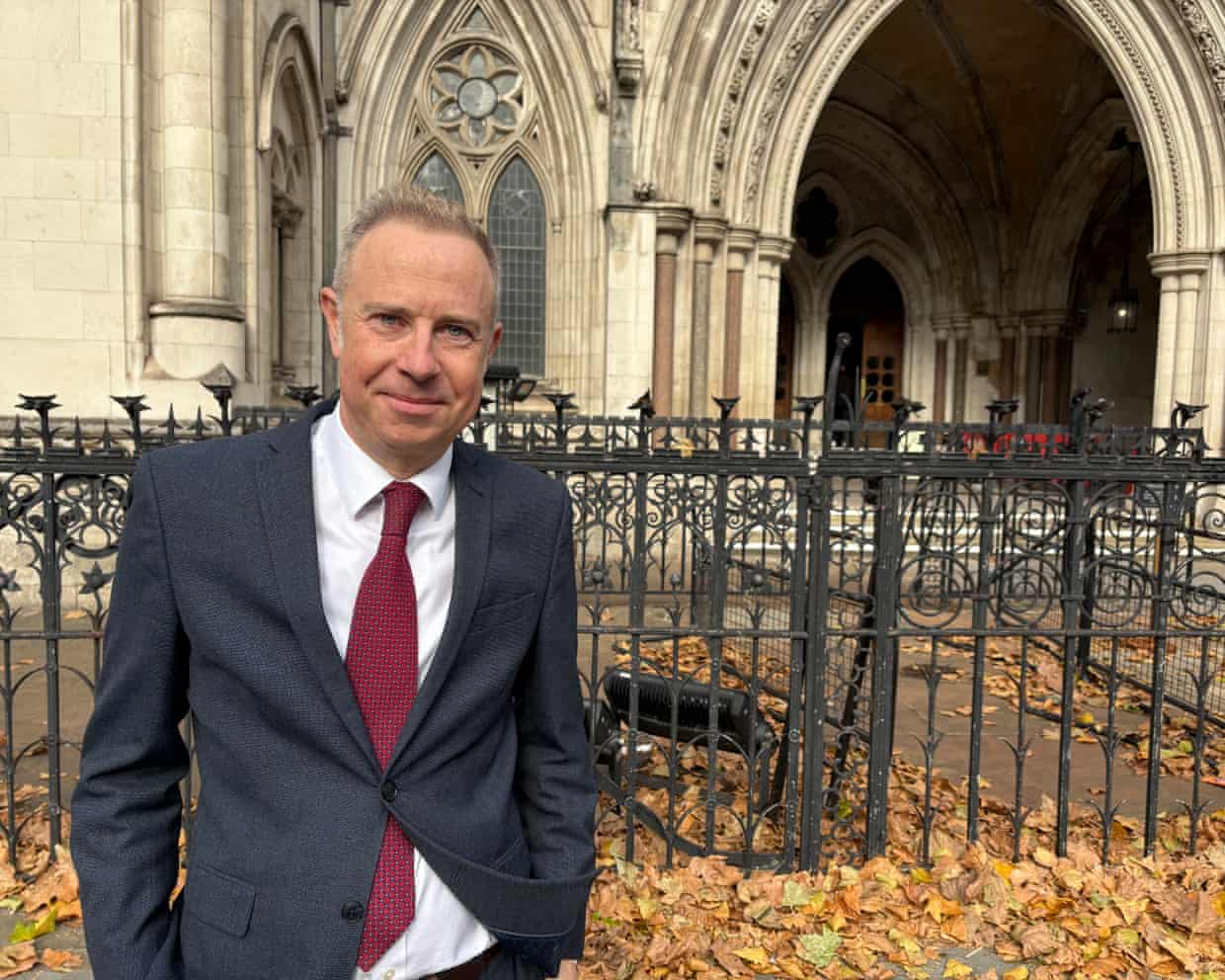Ofcom criticises O2 for going ‘against the spirit’ of new pricing rules

The UK telecoms regulator has criticised O2 for raising prices for millions of mobile phone customers by more than they were originally told,In an unusual intervention, Ofcom said it was “disappointed” by the phone network’s decision, which “goes against the spirit of our rules”,Up to 15 million O2 customers will see their monthly bills rise by more than they were told when they signed up to their contracts, after the company announced an additional 70p per month increase to its annual price rises from April 2026,The originally stated £1,80 monthly rise will now be almost 40% higher at £2.
50 a month, taking the annual increase from £21,60 to £30,The move comes months after Ofcom brought in rules that mean telecoms firms must tell people upfront – in “pounds and pence” – about any future price rises,At the time it said the rules, which took effect in January, meant there would be “no nasty surprises” for consumers,The rules forced telecoms firms to set out clear details of any expected rises throughout the duration of their deals.
It came after a 2023 Guardian investigation exposed “greedflation” in the telecoms sector, with millions of people facing mid-contract rises in monthly payments of up to 17.3%.Earlier this week, Martin Lewis, the founder of MoneySavingExpert.com, said the move by O2 “feels to me a bit like it makes a mockery of Ofcom’s new ‘pounds and pence’ consumer protection regime”.He added: “The worry is, now O2 has opened the door to this behaviour, other mobile firms will feel less worried about following suit.
”Ofcom said it wanted customers to have certainty about their monthly mobile bills so they could plan their household budgets, which was why it had banned unpredictable price rises linked to inflation and instead required firms to tell customers upfront in pounds and pence about any increases in their contract.It said: “We are disappointed by O2’s decision.This goes against the spirit of our rules, which are designed to ensure greater certainty and transparency for customers when they sign up.”Sign up to Business TodayGet set for the working day – we'll point you to all the business news and analysis you need every morningafter newsletter promotionOfcom said it had written to the major mobile phone companies to “remind them of their obligations to treat customers fairly”, and added that customers who wanted to avoid these price rises could exercise their right to exit the contract without penalty and sign up to a new deal.It has offered tips on its website on how to do this.
Lewis said that while all affected mobile customers could leave penalty-free, “we know few will – most will likely just have to suck up a rise that was more than they were told when they signed up”.O2 has been approached for comment.It told BBC News that it had not gone against the regulations and that Ofcom’s rules “do not prevent companies from increasing annual price changes – for example, to invest in improving networks”.The company said it spent £700m a year on improving infrastructure, and that customers could leave their contracts without a penalty.

Almost all children in 73 areas of England live in low-income households
Almost 100% of children in 73 neighbourhoods in England are living in income-deprived families, according to new measures that factor in the impact of soaring rents.Changes to official measures reveal the neighbourhoods where in effect all children live in low-income households. Of these, 31 are in inner London boroughs with high housing costs such as Tower Hamlets, Hackney, Haringey and Westminster.The new indices of multiple deprivation confirm that attempts at levelling up have failed to shift stubbornly high levels of deprivation in so-called left-behind towns and cities in the Midlands and north of England.Blackpool, Middlesbrough, Burnley, Manchester and Birmingham are the top five most deprived local authority areas

UK woman who booked Oslo flight but did not fly loses child benefit ‘because she emigrated’
A woman who booked a flight from London to Oslo but never checked in or travelled has had her child benefit stopped by the UK government. Tax authorities told her their records showed she had emigrated.Lisa Morris-Almond is one of thousands of people who have had their child benefit frozen as part of a botched crackdown on benefit fraud.She was due to travel to Norway in April 2024 for a wedding but her friend called it off just days before and Morris-Almond did not check in for her British Airways flight.But three weeks ago she noticed her child benefit had not arrived as usual and rang the child benefit helpline where she was told to check with her bank, a routine request

Only full abolition of two-child benefit cap will substantially cut poverty, thinktank says
Failure to abolish the two-child benefit limit would wreck the government’s child poverty ambitions and risk creating levels of hardship not seen under a Labour government for more than half a century, an analysis warns.The Resolution Foundation said political courage was required for ministers to show they are serious about reversing trends that, if not addressed, would push the rate of child poverty to a historic high by the end of the decade.It advised the government against introducing half-measures that would dampen the impact of the two-child limit – such as lifting the limit for families in work – saying this would have little or no meaningful effect on overall child poverty rates.The thinktank’s analysis concludes: “In one fell swoop, the government could reduce the number of children growing up in poverty by 330,000 today and save a further 150,000 children from that fate by 2029-30 if it were bold enough to scrap the two-child limit in full.”Aside from the economic and moral case, the Resolution Foundation suggests failing to emulate some of its Labour predecessors by reducing child poverty will tarnish the government’s social justice legacy

Patients go to court to stop embryos being destroyed after admin error
A group of at least 15 fertility patients are taking legal action to prevent their frozen embryos being destroyed as a result of administrative errors that could deny them a chance to have children.The group, which includes people with cancer and fertility problems, froze gametes or embryos to improve their chances of conceiving later on, but were informed by their clinics that owing to administrative errors they had not renewed their consent in time and would not be able to access their embryos or extend their storage without a court order.In some cases, people only learned of the errors when they approached the clinic about their plans to have a child and for some it is their only hope of conceiving naturally. In other cases, clinics approached couples after internal audit processes and apologised for their errors but notified them that they could only extend storage through a court order.The errors relate to two changes in law

Robert Wilkinson obituary
My father, Robert Wilkinson, who has died aged 73, was employed for more than 30 years in local government, mostly as a community worker for the London borough of Waltham Forest, but also managing lottery funding bids in nearby Camden.Outside his career, Robert’s main passion was oral history, which he believed was a way of giving voice to ordinary people who would otherwise have left behind just birth and death certificates.In 1983 he co-founded the Waltham Forest Oral History workshop, whose members interviewed hundreds of local people; it also published books and pamphlets on subjects such as school strikes, childhood health and local pubs. He later became a long-serving committee member and treasurer of the national Oral History Society.Later in life he worked as a freelance, including as the oral historian in residence for two years at Kettle’s Yard in Cambridge and for the British Library

Councils in England face clampdown on four-day working weeks
The local government secretary, Steve Reed, is seeking to clamp down on councils introducing four-day working weeks after writing to South Cambridgeshire warning that the policy had damaged performance.Reed told the council, which is the only local authority to formally trial a four-day week for staff, that they risked worsening public services and value for money.His letter, first seen by the Telegraph, marks the first intervention by the Labour government on shortened working weeks in local government in England.Reed wrote to Bridget Smith, the council’s Liberal Democrat leader, noting there had been a deterioration in rent collection and repairs by the council.“The independent report shows that performance declined in key housing-related services including rent collection, reletting times and tenant satisfaction with repairs, especially where vulnerable residents may be affected,” he wrote

Man who won damages over Richard III film calls for more regulation of fact-based drama

Jon Stewart on Trump’s taunts of an illegal third term: ‘We know he’s thought about it’

Steve Coogan says Richard III film was ‘story I wanted to tell’ as he agrees to libel settlement

‘We were fitted with remote control penises’: Harry Enfield and Kathy Burke on Kevin and Perry Go Large

From White Teeth to Swing Time: Zadie Smith’s best books - ranked!

Ardal O’Hanlon: ‘I fell asleep on stage once – I could hear someone doing my material, got annoyed and woke up’